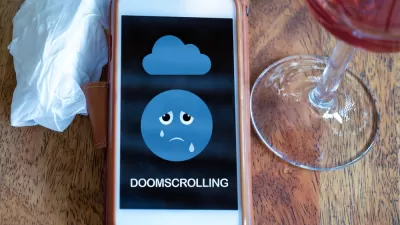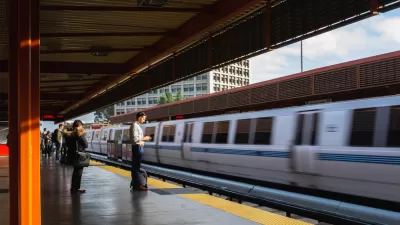Here's a counter-intuitive proposition for transit agencies: feed the Twitter trolls.
Conventional wisdom says not to feed the trolls—the antagonistic group of naysayers and critics with nothing nice to say on the Internet—but a recent study by University of Southern California professor Lisa Schweitzer finds evidence that transit agencies might be better served by responding to online commentary.
Andrew Keatts reports on the study, summing up its findings: "transit agencies might not want to just bury their heads in the sand. Agencies that engage directly with Twitter users, rather than simply blasting out service announcements, end up seeing significantly more positive discussions about them on the social media service…"
Keatts details the findings of the study, which includes an analysis of 64,000 tweets about public transit agencies—most of them bad. The key takeaway for transit agencies, however, is that they aren't helpless in the face of this criticism.
FULL STORY: Why Transit Agencies Should Feed Twitter Trolls

Maui's Vacation Rental Debate Turns Ugly
Verbal attacks, misinformation campaigns and fistfights plague a high-stakes debate to convert thousands of vacation rentals into long-term housing.

Planetizen Federal Action Tracker
A weekly monitor of how Trump’s orders and actions are impacting planners and planning in America.

In Urban Planning, AI Prompting Could be the New Design Thinking
Creativity has long been key to great urban design. What if we see AI as our new creative partner?

Pedestrian Deaths Drop, Remain Twice as High as in 2009
Fatalities declined by 4 percent in 2024, but the U.S. is still nowhere close to ‘Vision Zero.’

King County Supportive Housing Program Offers Hope for Unhoused Residents
The county is taking a ‘Housing First’ approach that prioritizes getting people into housing, then offering wraparound supportive services.

Researchers Use AI to Get Clearer Picture of US Housing
Analysts are using artificial intelligence to supercharge their research by allowing them to comb through data faster. Though these AI tools can be error prone, they save time and housing researchers are optimistic about the future.
Urban Design for Planners 1: Software Tools
This six-course series explores essential urban design concepts using open source software and equips planners with the tools they need to participate fully in the urban design process.
Planning for Universal Design
Learn the tools for implementing Universal Design in planning regulations.
planning NEXT
Appalachian Highlands Housing Partners
Mpact (founded as Rail~Volution)
City of Camden Redevelopment Agency
City of Astoria
City of Portland
City of Laramie





























